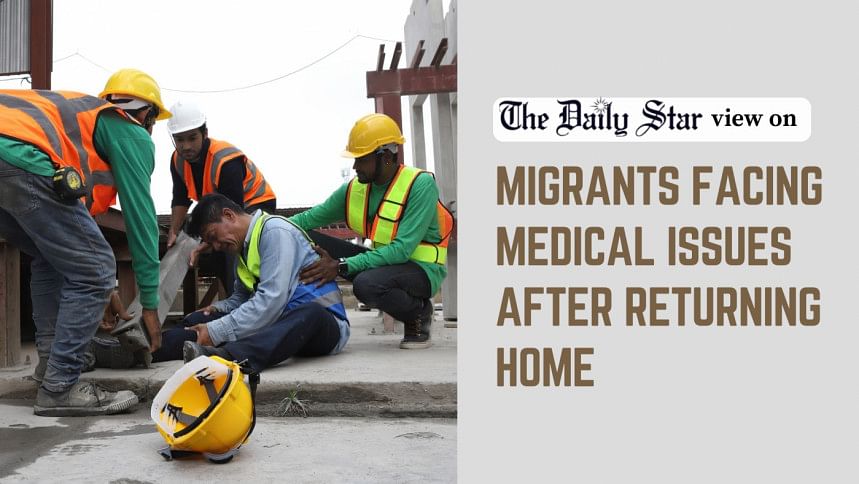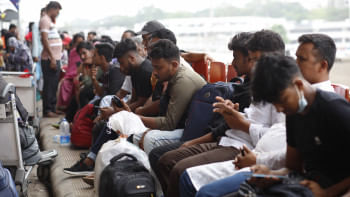Address the plight of returnee migrant workers

A recent study has offered us another stark glimpse into the harsh realities faced by returnee migrant workers. Many of these individuals, already burdened with hefty loans taken to secure overseas employment, return home to face additional financial strain due to medical expenses. The study, conducted by the Ovibashi Karmi Unnayan Program (OKUP) between 2021 and 2023, reveals that migrant workers who spent two to four years abroad often came back with severe health issues, including back pain, tumours, cardiac and injury-related complications, kidney problems, hypertension, and uterine infections. Among the surveyed, 52 percent reported physical health issues, while 48 percent suffered from mental health problems. Moreover, 57 percent had to borrow an average of Tk 90,000 to cover treatment expenses upon their return.
This shows the inhumane conditions that many migrant workers often endure abroad. One woman, for example, recounted how a broker sent her to Saudi Arabia with the promise of a well-paying job, only for her to experience physical abuse, sexual harassment, and food deprivation at her employer's house. Another worker shared that after paying Tk 4 lakh to migrate to Saudi Arabia, he was left jobless for a month, confined in a room with 20-25 others without access to food, clean water or a bathroom. He eventually developed type 2 diabetes and urinary problems. Neither worker received any compensation for their suffering.
Such incidents are far from isolated. Experts and rights advocates have long highlighted the plight of our migrant workers both before and after migration. Exploited by corrupt and unscrupulous recruitment agents at home, they are often subjected to gruelling workloads, inadequate living conditions, and little or no salary abroad. This cycle of abuse and suffering simply cannot be accepted.
We, therefore, urge the government to take decisive action to address these challenges, including by improving the lives of returnee migrant workers. First, it should provide adequate medical support and assistance for their rehabilitation and reintegration into society. In this regard, properly utilising the Wage Earners Welfare Fund can be a big help. Second, the government must revise the existing insurance policies for migrant workers to ensure comprehensive health coverage. It must also engage with labour-importing countries to secure better living and working conditions, as well as access to medical treatment when needed. Furthermore, our embassies in those countries should have dedicated help desks to address the grievances of migrant workers promptly. These individuals, who contribute significantly to the nation's economy, deserve our respect and unwavering support.


 For all latest news, follow The Daily Star's Google News channel.
For all latest news, follow The Daily Star's Google News channel. 








Comments